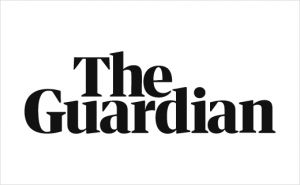
(This post originally appeared on The Guardian)
There’s no question that the efforts of this country’s healthcare and frontline workers during the coronavirus pandemic have been inspirational. But one other group has also inspired me: the nation’s small business owners.
In the midst of a global health crisis and facing draconian restrictions, many restaurateurs have amped up their delivery services, re-jiggered their menus and constructed out of thin air outside versions of their eateries in city streets and parking lots, complete with heaters and private dining cubes. Countless retailers have pivoted online. Established firms managed to keep working even with all of their employees at home. Construction firms, plastics companies and makers of essential products and services have scrambled to fill demand. New entrepreneurs have emerged selling and servicing handmade and sustainable products, butter, outdoor heaters, swimming pools and robots that clean offices. Startup applications are through the roof.
And through it all – during one of the worst recessions we’ve seen in recent memory – small business optimism has remained strong. Even this month, after a bitterly fought election where a very pro-business president suffered defeat at the hands of an opponent who promises more regulations, taxes and worker benefits, small business owners are looking to the future with hope and confidence.
The proof of this is in the latest release of the National Federation of Independent Business’ Small Business Optimism index. The index, which has been published in one form or another for almost 50 years declined a few points this month. But it still remains at historically high levels. In fact, it remains at similar points seen just last year and still much higher than what was seen during the Obama administration.
Even with an estimated 12 million people still unemployed, the report – and the related jobs report issued by the NFIB – revealed that finding qualified employees “remains a problem for small business owners” with “89% of those hiring or trying to hire reporting few or no ‘qualified’ applicants for the positions they were trying to fill.” Another 24% of owners reported raising compensation, and a net 20% plan to do so in the coming months.
Businesses are investing. Fifty-three per cent reported capital outlays in the last six months and of those making expenditures, 38% reported spending on new equipment (up 2 points), 24% acquired vehicles (up 4 points), and 17% improved or expanded facilities (up 1 point). Another 26% of owners plan capital outlays in the next few months.
The frequency of reports of positive profit trends decreased 4% to a net negative 7% reporting quarter-on-quarter profit improvement, historically a favorable reading. Only 1% – 1%! – of owners reported that financing was their top business problem, which was unchanged from last month.
What does this mean for policymakers? It means that not as many small businesses need “stimulus” or “relief” as the media would like us all to believe. There is no question that some industries – particularly restaurants, retail, travel, fitness and the arts – have been decimated because of government shutdowns. It also seems clear that businesses owned by people of color have also suffered disproportionately in this pandemic – part of a broader, worrying trend that needs addressing. These people need help and that help needs to come by way of some government cash and/or a responsible relaxing of the shutdown rules to give these business owners a chance to sell their products and services to actual customers.
William Dunkelberg, the NFIB’s chief economist paints a more cautious picture. “Small business owners are still facing major uncertainties, including the Covid-19 crisis and the upcoming Georgia runoff election, which is shaping how they’re viewing future business conditions,” he says. “The recovery will remain uneven as long as we see state and local mandates that target business conditions and disproportionately affect small businesses.”
I get it. He’s trying to keep expectations realistic. But I don’t view things the same way. These numbers are impressive. Actually, they’re inspirational.
A lot of small businesses in America are doing fine so far, and throughout what has been the craziest, unpredictable business environment I can personally remember. They’re making money. They’re investing. They’re optimistic about the future. Which is surprising considering the predicament they’ve faced this year. Well, considering what I know about my small business clients, maybe not so surprising after all.

